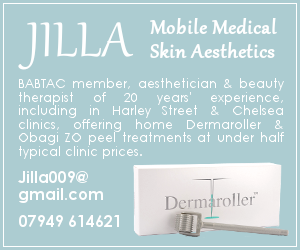Introduction
Healthy hair is not merely an accessory but a reflection of internal health and wellness. Yet, maintaining the vitality of our hair amidst modern challenges such as pollution, stress, and chemical exposure is increasingly difficult. This guide is all about empowering you with comprehensive, effective strategies to rejuvenate and sustain healthy hair.
Understanding hair health is fundamental. It’s influenced by a multitude of factors—from genetics to environmental impacts and daily habits. Our hair suffers daily , be it through the harsh chemicals in products we use or the environmental pollutants we encounter. Even lifestyle factors like diet and stress levels play critical roles in determining the health of our hair.
But fear not, achieving vibrant and healthy hair is attainable with the right knowledge and tools. This guide will walk you through essential nutritional guidelines that support hair strength and growth from within. We will delve into how to choose the right hair care products that nurture rather than damage your hair. Additionally, we’ll explore a variety of hair treatments that can restore moisture and lustre to even the most stressed and damaged hair.
With patience, consistency, and the right hair care treatment, your hair can become a crowning glory that shines with health. Let’s begin this journey towards unlocking the secrets to beautiful, resilient hair.
Nutritional Foundations for Healthy Hair
A nutrient-rich diet is the bedrock of good hair health. Key nutrients include:
- Protein: Hair is primarily made of protein, so adequate consumption is vital.
- Vitamins A and C: These help with sebum production and collagen synthesis respectively.
- Biotin: Part of the vitamin B family, biotin supports hair strength.
- Iron and Zinc: These minerals prevent hair loss and foster hair growth.
- Omega-3 Fatty Acids: These fats are essential for maintaining scalp health and can be found in fish, walnuts, and flaxseeds.
Incorporating a balanced diet with leafy greens, nuts, berries, and lean proteins is essential. Supplements can also be considered under professional guidance to address any deficiencies.
Choosing the Right Hair Care Products
Selecting suitable hair care products is pivotal:
- Oils and Conditioners: Opt for products that match your scalp type and hair needs. Avoid harsh sulphates and parabens.
- Shampoo and Serums: Specially formulated natural shampoos can also help restore daily damage.
- Leave-in Conditioners and Detanglers: These can help protect hair, especially when it’s wet and vulnerable to damage.
Minimising Heat and Chemical Damage
Reducing the use of heat styling tools and harsh chemical treatments preserves hair integrity. When using heat, always apply a heat protectant. Consider air drying your hair when possible to reduce thermal damage. Exploring hairstyles that don’t require heat can also preserve your hair’s natural texture and strength.
Regular maintenance through trimming, moisturising treatments, and protective styling will help prevent damage and retain length. Furthermore, minimising the use of heat and harsh chemicals can protect the structural integrity of your hair, preserving its natural texture and sheen.
Natural Remedies for Hair Health
Many natural remedies can enhance hair health:
- Aloe Vera: Soothes the scalp and conditions hair.
- Rice Water: Enriched with inositol, it helps repair damaged hair and increases shine.
- Tea Rinses: Green tea or black tea rinses can reduce shedding and stimulate growth.
- Herbal Infusions: Using herbs like lavender and rosemary in rinses or oils can promote scalp health and add fragrance naturally.
Achieving and maintaining healthy hair is a comprehensive journey that demands a blend of proper nutrition, careful selection of hair care products, and mindful handling of your hair. The steps outlined in this guide are designed not only to repair damaged hair but also to sustain the health and vitality of your locks over time.
Remember that good hair health begins from within. A diet rich in essential nutrients like proteins, vitamins, and minerals lays the foundation for strong, vibrant hair. These nutrients empower your hair from the roots, making them resilient against external stresses. Supplements can play a role too, especially if your diet lacks specific nutrients, but they should be used judiciously and ideally under professional guidance.
Understanding and Avoiding Harmful Practices
Be mindful of common practices that can damage hair:
- Tight Hairstyles: Avoid styles that pull on the scalp, which can lead to hair loss.
- Chemical Overprocessing: Frequent colouring or chemical straightening can weaken hair.
- Overwashing: Stripping hair of its natural oils too frequently can lead to dryness and irritation.
The products you choose to apply directly to your hair also have a significant impact. Opt for those that complement your hair type and avoid harsh chemicals that strip hair of its natural oils. Natural oils and serums can provide the extra nourishment your hair craves, especially in harsh weather conditions or if you frequently use styling tools.
Effective Hair Treatments
Regular treatments can help maintain hair’s health:
- Deep Conditioning: Once a week, treat your hair to a deep conditioning mask.
- Scalp Treatments: Use scrubs or oils to keep the scalp healthy, which is crucial for hair growth.
- Protein Treatments: For damaged or chemically treated hair, periodic protein treatments can help rebuild hair strength.
- Moisture Treatments: Hydrating treatments with ingredients like honey and aloe vera can restore balance and prevent brittleness.
Finally, the role of stress management cannot be overstated. Stress can manifest physically, and your hair can be one of the first areas affected. Incorporating stress-reducing practices like yoga, meditation, or even regular physical activity can have profound benefits for your hair health.
In conclusion, healthy hair is a mirror of your overall health and care routines. By adopting a holistic approach to hair care—encompassing diet, product choice, treatment strategies, and lifestyle adjustments—you can not only revive your locks but also enrich them with lasting health and beauty.








